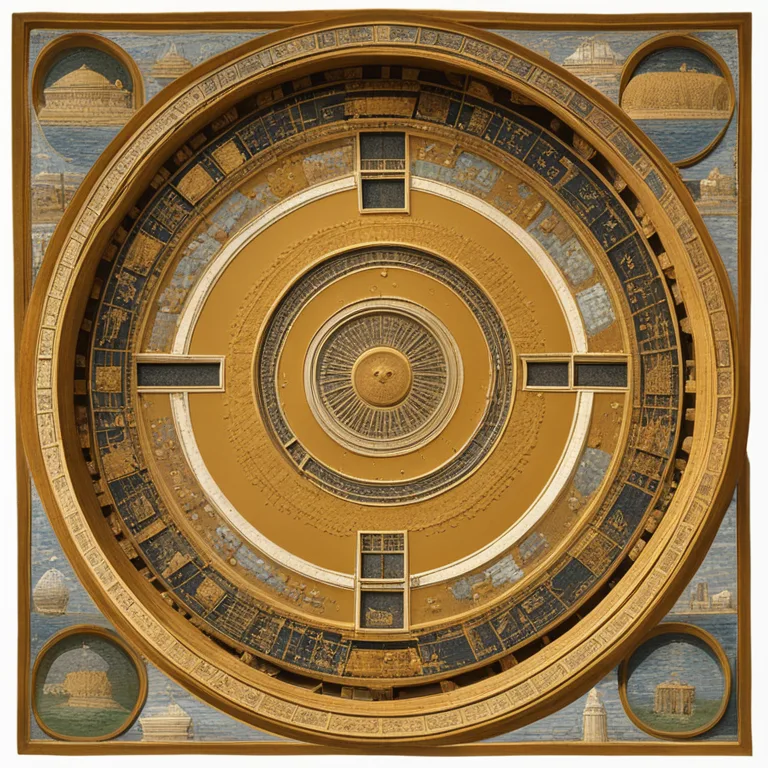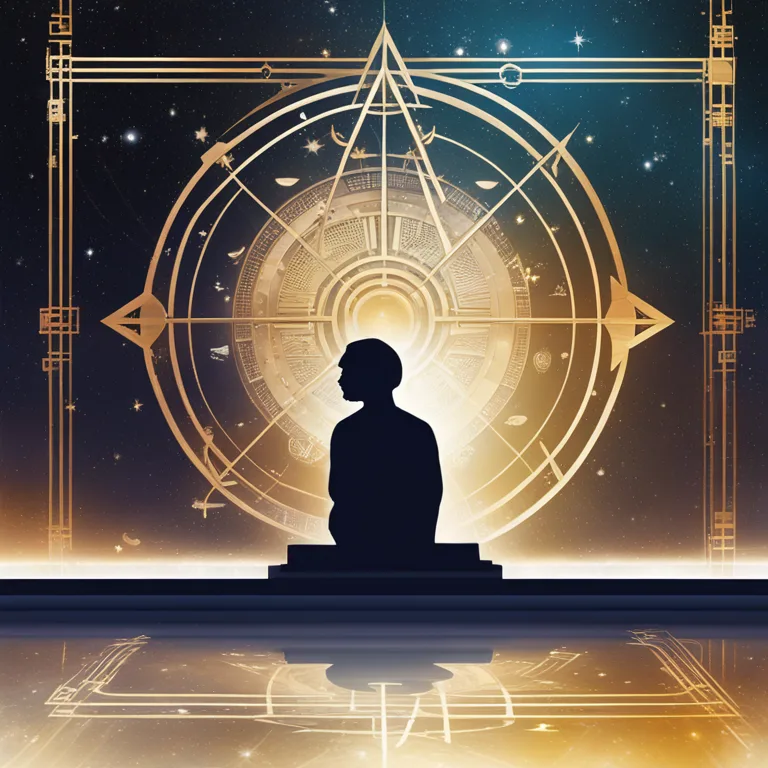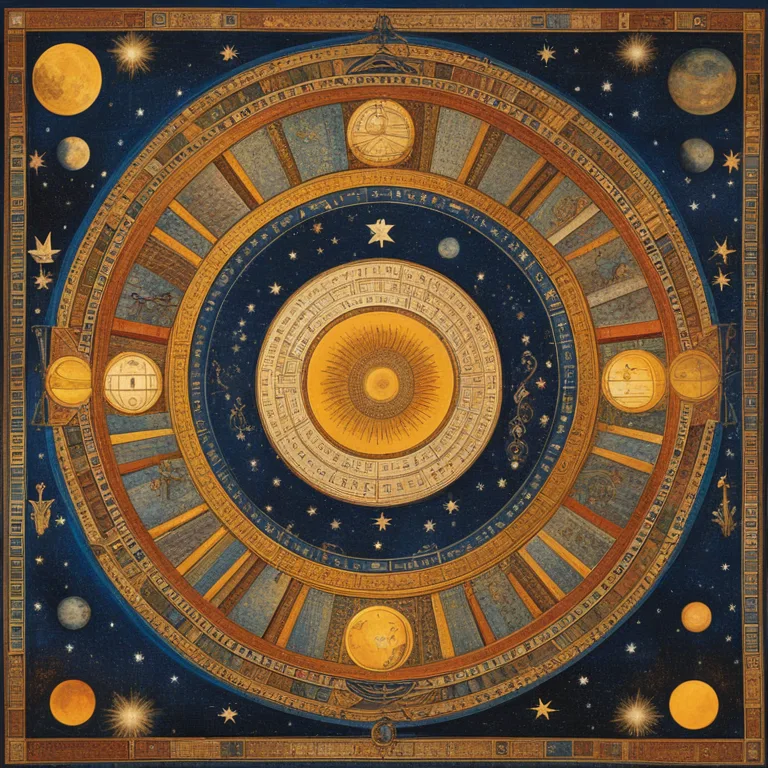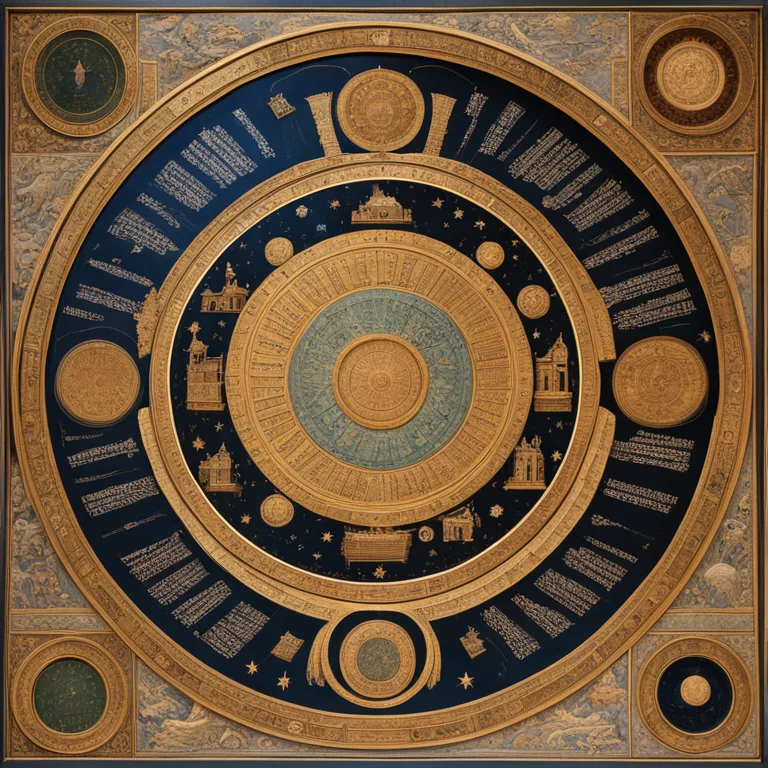
The Dawn of Astrology: A Historical Glimpse
The origins of astrology trace back to ancient civilizations, where celestial observations intertwined with human culture, shaping destiny and offering predictive guidance.
article by Priya Deshmukh
Tracing Astrology's Ancient Roots
The quest to understand the stars and their influence on human life began thousands of years ago. The earliest recorded evidence of astrology comes from the 2nd millennium BCE, with the ancient Babylonians playing a pivotal role. They developed a system where celestial events were believed to have a direct influence on earthly affairs. Wars were waged, crops were sown, and kings ascended thrones, often based on astrological consultations. The Babylonians created the zodiac, a central element still used in astrology today.

Celestial Knowledge Beyond Babylon
Astrology's allure wasn't confined to Mesopotamia. The practice spread to neighboring civilizations, each weaving its own cultural and spiritual beliefs into the astrological tapestry. In Ancient Egypt, the movement of the stars was linked with the divine, reflecting their gods' will. Similarly, the Greeks enriched astrology with mythological narratives, giving us the names of constellations and planets that endure in Western astrology. These ancient Greeks, especially Ptolemy with his Tetrabiblos, were instrumental in framing astrology as we know it.

Cultural Exchange and Astrology's Evolution
As empires rose and fell, astrology was exchanged and transformed. The Persians revised Babylonian astrology, which was later absorbed by Islamic scholars who made significant advancements during the Islamic Golden Age. This knowledge, preserved and enhanced, eventually made its way back to Europe through translations, greatly influencing Renaissance thought and beyond. The flourish of astrology in Western Europe during the medieval period laid foundations for the personal zodiac horoscopes used in the contemporary era.

Astrology in the Modern Age
Despite the scientific revolution challenging astrology's validity, its practice continued to evolve, surviving through popular literature and daily horoscopes. Astrology's personal aspect grew stronger in the 20th century with psychological astrology, which applies astrological interpretation to the psyche, integrating modern psychological concepts. Astrologers like Dane Rudhyar pioneered this approach, seeking to harmonize celestial influences with individual personal growth.

Astrology Today and Beyond
Today, astrology enjoys popularity in the digital world, with apps and websites offering personalized forecasts and compatibility analyses. Looking ahead to 2024, astrologers might emphasize the upcoming alignments, such as the recurring Saturn-Uranus square, interpreting it as a period of global restructuring and innovation. Space exploration and new astronomical discoveries also have the potential to reshape astrological narratives, as celestial awareness deepens.
Published: 12/29/2023
Modified: 12/29/2023
More predictions
Come back here soon to learn more about yourself and your future


The Rhythms of Your Birth Chart
Delve into the significance of your birth chart and what the celestial patterns at your birth reveal about your potential, personality, and life path.


Birth Chart & Predicting Marriage
Discover the potential of birth charts in forecasting matrimonial bliss and partnerships, with a cosmic lens on future commitments.


Birth Chart Without Time: Overview
Discover insights into analyzing a birth chart when the exact time of birth is unknown, providing alternative astrology approaches for clarity.